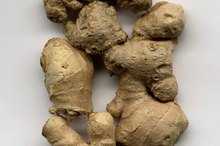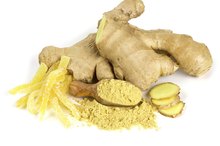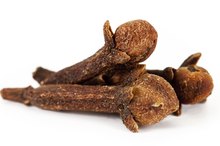Home Remedies for Sinus Pressure and Nausea
Sinus pressure and nausea are common symptoms of a wide variety of illnesses and often occur together. Sinuses are moist air spaces in the skull, behind the face. The spaces may fill with fluid, causing pressure behind the eyes, cheekbones and nose. Sinus pressure may be due to allergies, a cold or flu, sinus congestion or infection. Nausea may be the direct result of postnasal drip, a common side effect of sinus congestion. Nausea may also be caused by a condition unrelated to sinus pressure, such as medications or a virus.
If you are experiencing serious medical symptoms, seek emergency treatment immediately.
Drink Liquids
Sinus pressure can be relieved by drinking more fluids to thin nasal secretions. This allows the sinuses to drain well, decreasing pressure. Drinking fizzy fluids, such as carbonated beverages, can alleviate nausea. Care should be taken, however, to drink small amounts of liquid frequently, as large amounts of fluid all at once can make a person feel more nauseated.
- Sinus pressure can be relieved by drinking more fluids to thin nasal secretions.
- This allows the sinuses to drain well, decreasing pressure.
Rest
How to Make Ginger Preserve
Learn More
Resting is a simple and effective way to recover from sinus pressure and nausea. People who suffer from sinus problems or nausea often have trouble sleeping, which exacerbates the symptoms of nausea and headaches. Rest may also help resolve the underlying problem causing the sinus pressure and nausea.
Eat Soup
Gastric juices churning in an empty stomach, coupled with mucus from sinus pressure that has dripped down the back of the throat, can cause nausea. Eating soup can lessen nausea by thinning those stomach acids. Warm soup can also drain the sinuses, reducing postnasal drip. The nutrition in the soup can also help combat whatever ailment is causing the sinus pressure and nausea.
- Gastric juices churning in an empty stomach, coupled with mucus from sinus pressure that has dripped down the back of the throat, can cause nausea.
- Warm soup can also drain the sinuses, reducing postnasal drip.
Mint
Ginger Root for the Lungs
Learn More
Mints have been used throughout history to relieve sinus pressure and to ease nausea. The American Cancer Society recognizes that the ingestion of mint has been shown to help control nausea 1. MayoClinic.com suggests drinking herbal tea with peppermint to curb digestive problems 2. Spearmint and other mints may also be used.
Elevate Head While Sleeping
Sleeping with your head up can drain the sinus cavities and relieve pressure. Elevating your head can also reduce nausea by discouraging acid reflux.
Warm Bath
A warm bath can help relieve both sinus pressure and nausea. The steam from hot water is inhaled, thinning the nasal secretions. A bath can have a relaxing effect, which helps reduce nausea.
Ginger
People in China have been using ginger to cure stomach upset for over 2000 years, according to the University of Maryland Medical Center 3. In addition, the Sinus Infection Home Remedy website encourages the use of ginger compresses on the forehead to reduce the pressure and pain of a sinus infection 4.
Blow the Nose
Once the remedies begin to take effect, the secretions in the sinus cavities begin to thin. These are either blown through the nose onto a tissue or handkerchief, or drip down the back of the throat to the stomach. This postnasal drip can cause nausea. To prevent stomach upset, it is important for a person to blow their nose frequently to remove these fluids.
- Once the remedies begin to take effect, the secretions in the sinus cavities begin to thin.
- To prevent stomach upset, it is important for a person to blow their nose frequently to remove these fluids.
Related Articles
References
- American Cancer Society: Peppermint
- MayoClinic.com: Indigestion
- University of Maryland Medical Center: Ginger
- Aydemir L, Doruk C, Çaytemel B, Şahin B, Şahin E, Çelik M, et al. Paranasal sinus volumes and headache: is there a relation? Eur Arch Otorhinolaryngol. 2019 May 16. doi: 10.1007/s00405-019-05461-1.
Writer Bio
Lynn Hetzler has been a writer since 2000. She was editor in chief and head writer for the online publication Eye on Cameraware. She owns a computer store offering repair, websites, instruction, and more. Hetzler is a certified medical assistant with experience in oncology, laboratory testing and protocol writing.









